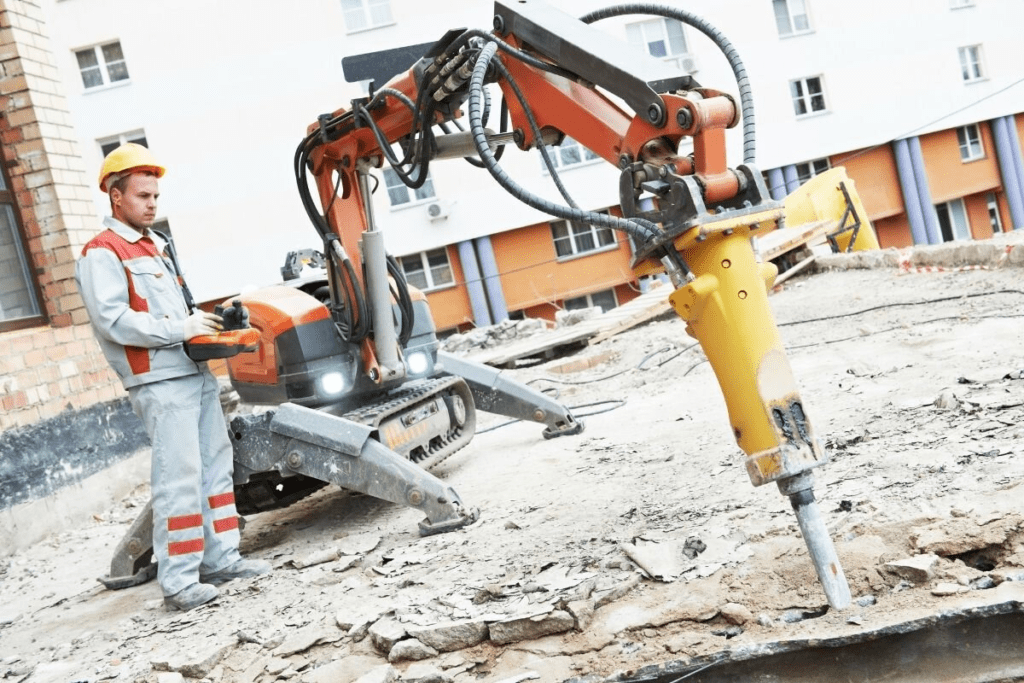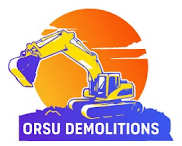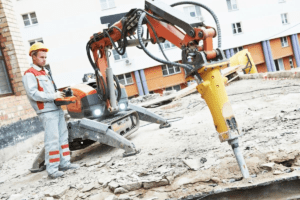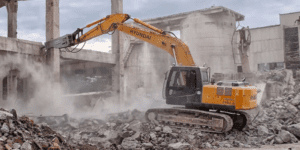Industrial demolitions in the UAE require meticulous planning, adherence to strict regulations, advanced technology, and a commitment to safety and environmental responsibility.
These projects typically involve the dismantling of large-scale industrial facilities, such as factories, warehouses, and industrial complexes, which necessitate specialized expertise and equipment.
First and foremost, regulatory compliance is paramount. Obtaining the necessary permits from local authorities and ensuring adherence to UAE’s stringent safety, environmental, and building codes are essential prerequisites. Detailed site assessments are conducted to evaluate the structure’s condition, identify any hazardous materials like asbestos or chemicals, and assess potential environmental impacts.
Advanced technology plays a crucial role in industrial demolitions. High-reach excavators, hydraulic breakers, and other specialized machinery are utilized to efficiently dismantle structures while ensuring safety and minimizing disruption to surrounding areas. Structural engineers conduct thorough analyses to determine the safest and most effective demolition methods, considering factors such as structural stability and proximity to neighboring structures.
Safety measures are rigorously enforced throughout the demolition process. Comprehensive risk assessments are conducted to identify and mitigate potential hazards, and stringent safety protocols, including the use of personal protective equipment (PPE) and adherence to emergency response plans, are strictly followed to safeguard workers and the public.
Environmental considerations are also prioritized. Hazardous materials are carefully handled, removed, and disposed of in accordance with environmental regulations. Waste management plans are implemented to maximize recycling and minimize the environmental impact of debris disposal.
Effective project management and communication are crucial for the success of industrial demolition projects in the UAE. Clear and continuous communication among stakeholders, including clients, contractors, regulatory authorities, and the local community, ensures transparency and addresses any concerns promptly. Project timelines are carefully managed to meet deadlines while maintaining high standards of safety and quality.
Post-demolition activities, such as site clearing, waste removal, and site restoration, are meticulously executed to prepare the area for future developments or ensure environmental remediation if needed.
Detailed documentation of the demolition process, including permits, inspections, and waste disposal records, is maintained for regulatory compliance and future reference.
industrial demolitions in the UAE require comprehensive planning, advanced technology, strict adherence to safety and environmental standards, and effective project management. By integrating these factors, demolition projects can be carried out efficiently, safely, and with minimal environmental impact, contributing to sustainable development in the region.




